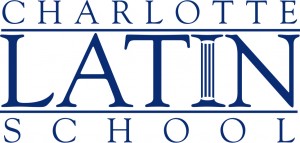By Smarty Guest Blogger, Mark Tayloe, Head of Lower School, Charlotte Latin School
In the field of education, when we hear a teacher or parent say, “You can’t teach a dog new tricks,” most administrators like me roll their eyes and assert that they have once again heard another excuse by someone who is change averse. However, as I ponder that trite saying, I have compassion for those who struggle with trying something new. Whereas certainly an old dog can learn new tricks, it surely isn’t as easy as it used to be. Those of us who have the opportunity to be in an elementary school, where I have had the good fortune to be for the last 19 years, find this truth manifests itself every day. The children we see are prime for every new idea and concept they encounter and go about learning it with great gusto.
The early childhood brain is so malleable that it’s often referred to as “plastic,” meaning easily shaped or molded. Teachers frequently refer to students’ brains as sponges that want to soak up everything you pour into them. Children are so hungry to learn and to try new things that we must take full advantage of this optimal time of child development to put them on a path for long-term success as students.
It is critically important that reading is the cornerstone of a lower school curriculum. A systematic, phonetic approach to teaching reading in kindergarten and first grade ensures that students have a strong foundation in phonemic skills – that they know the sounds, and have the tools to phonetically spell or pronounce any word they encounter. We want children to be strong, fluent readers by the time they reach the end of first grade. While these skills come easily to many children, there are plenty that are only emerging as readers; it is important to be very intentional in working diligently with those who find reading more difficult, knowing that the “reading brain window,” which is so wide open when they are five and six, is considerably more narrow at eight, after which building those foundational phonics skills, becomes much more challenging,
Of course, seizing upon the brain’s elasticity is not just important in regard to reading. Young children are so game for learning, that while, yes, it’s important to teach them knowledge, it’s so much more important to teach them skills. We want our children to be problem-solvers. We need to teach them how to think, not what to think.
It is important that today’s math curricula teach how to solve problems in multiple ways. STEAM Labs (Science, Technology, Engineering, Art, and Math) employ hands-on activities that make students think critically, creatively and collaboratively. It’s not just the end result that matters; students learn valuable life skills along the way. Whether building bridges from popsicle sticks or constructing a paper roller coaster, frustration at the outset of a project frequently ends with proud accomplishment. That is when “I can’t do this,” becomes “What’s next?”
We continue to be in a space called “the neurological revolution.” Educators must stay current with the research, and while we continue to educate children with many of the tried and true methods that we know have worked for a long time, we must take risks, endure some chaos, allow for some failure and frustration (hard for parents, by the way), and take advantage of these golden years of childhood by challenging our children to go beyond their comfort zone and develop the lifelong learning skills that help pave the way for the long run.
![]()
Charlotte Latin Admission Events:
TK & Kindergarten
October 6, 2017
9:30 – 11:30 a.m.
Grades 6–12
October 13, 2017
9:30 – 11:30 a.m.

Charlotte Latin School
9502 Providence Road
Charlotte, NC 28277a
704-846-1100
Admissions Office: 704-846-7207
website: www.charlottelatin.org
facebook: www.facebook.com/charlottelatinschool
twitter: @charlottelatin


